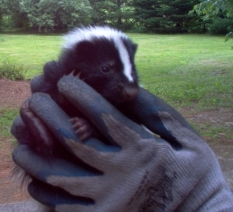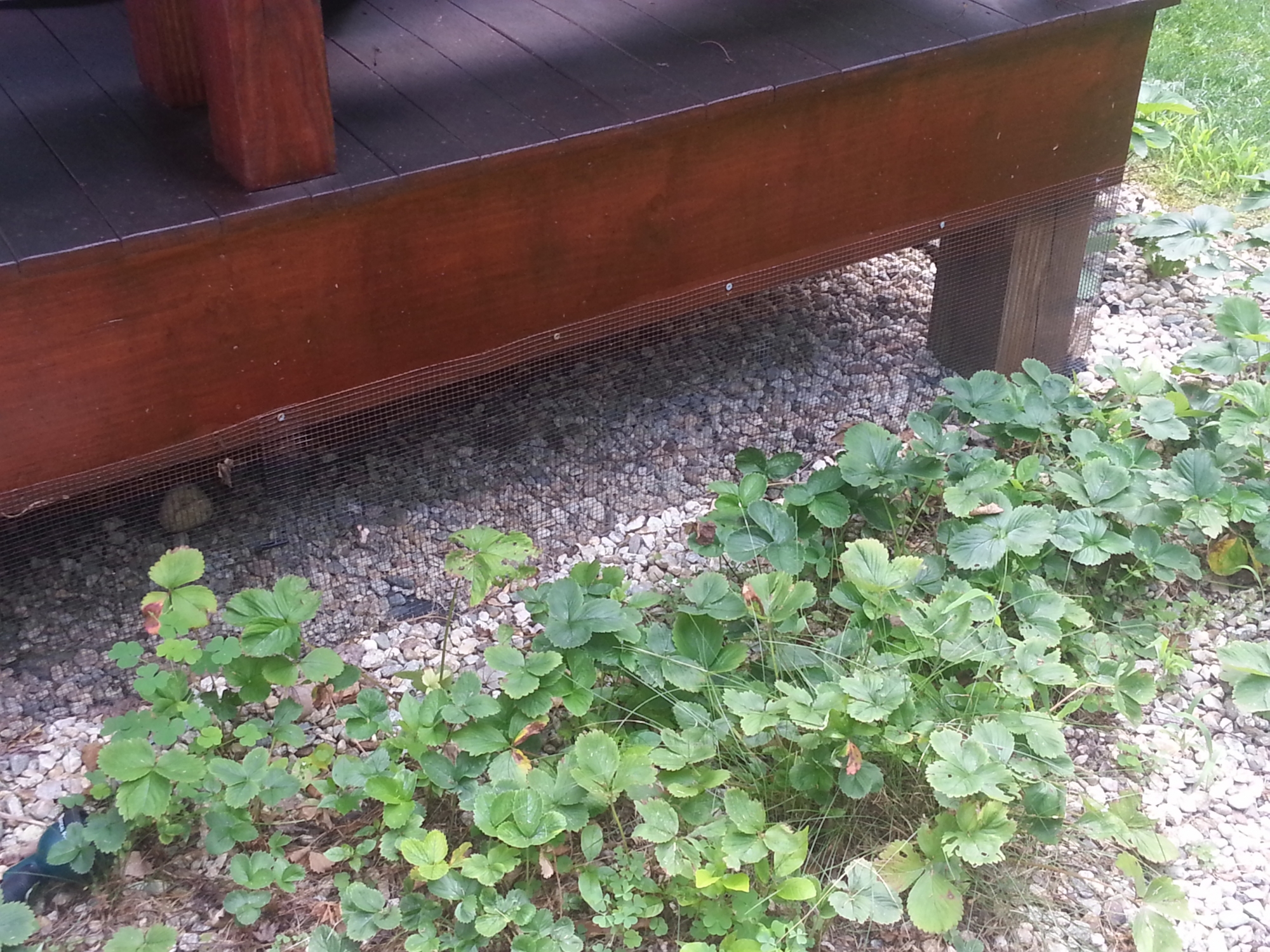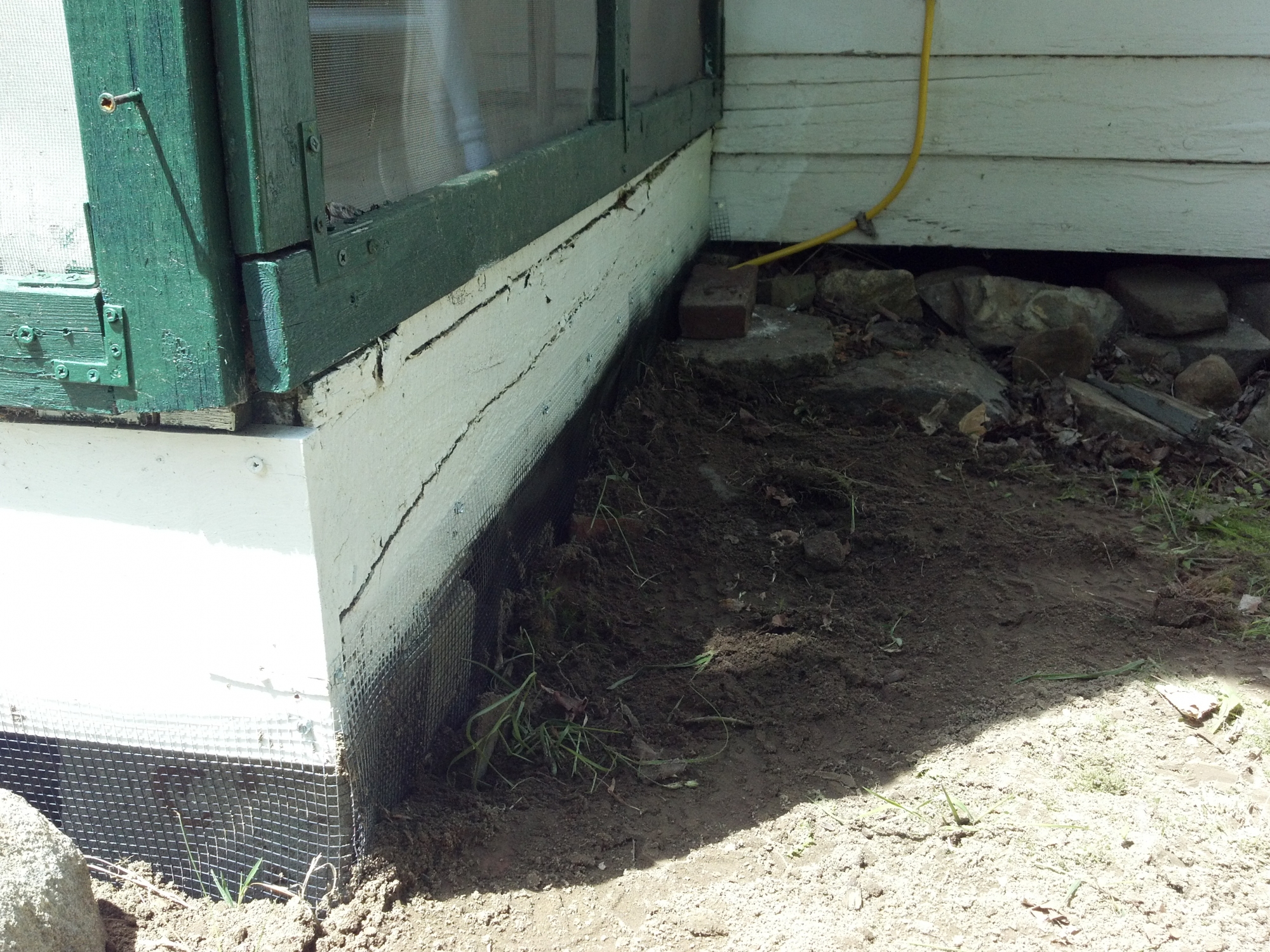Skunks only need a small opening (as little as 3 inches) to get into homes or buildings. They are in the same family as the weasel, so most of their size is fur. They tend to burrow under unprotected sheds, decks/porches, crawlspaces and mobile homes.
When Are Skunks a Problem?

Skunk problems are typically at their peak during three times of the year:
- Mating season (mid-February through mid-March)
- Birthing seasons (May–June)
- Pre-hibernation foraging (approximately October–November) when skunks dig up lawns searching for grubs and worms
Skunk Mating Season
Mating season involves skunks seeking mates — and this often occurs nears homes. Homeowners report skunk tracks in the snow or smell skunk spray. Skunks secrete spray when they are mating and males often spray when they're fighting and feel threatened.
Birthing Season
The season of skunks' birth is a precarious one for removal — we can either relocate the entire family, including mother and babies, or we can seal off the areas that skunks are inhabiting and install a one-way valve that allows the family to exit but not re-enter. This can only be done when young are able to walk (3+ weeks).
The very last thing we want is to separate a mother from her kits. When we trap skunks, we always inspect the gender of the animal to ensure we aren't accidentally relocating a mother who may get separated from her young on your property Many wildlife companies may not attempt the extra care of not separating mothers from their babies, but Critter Control of New Hampshire considers it a necessary step.
Pre-Hibernation
Fall in New Hampshire brings rain, which saturates the soil and brings earthworms to the surface. Skunks utilize the "easy pickins" as a chance to fatten up before winter. When skunks forage in lawns, it can often look like someone ran a rototiller across your yard.
Critter Control of New Hampshire Skunk Control
Critter Control of New Hampshire does a fair amount of odor control using odor fogging machines and ozonators to help with odors caused by skunks.
After we have relocated your smelly visitors, we will quote appropriate repairs to keep your skunks from coming back.
If it is the winter season with many inches of snow out, we will come back in the spring when we can see where and how the skunks have entered and quote to repair the areas then.
Methods like sealing foundation gaps, replacing and screening broken foundation vents and installing screening around unprotected sheds/decks are the most effective and permanent ways to keep


Critter Control of New Hampshire will live trap and relocate your skunks from your yard.